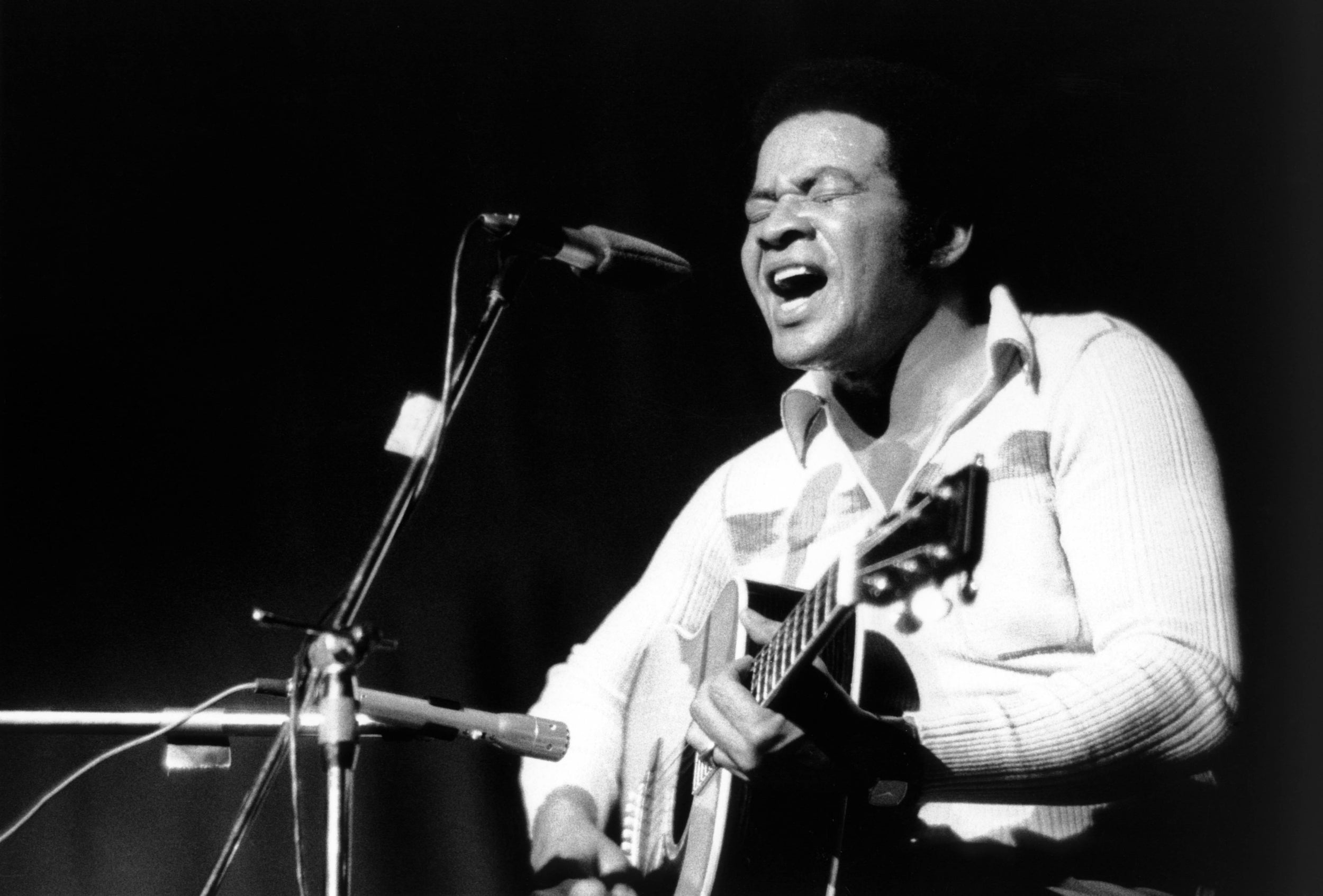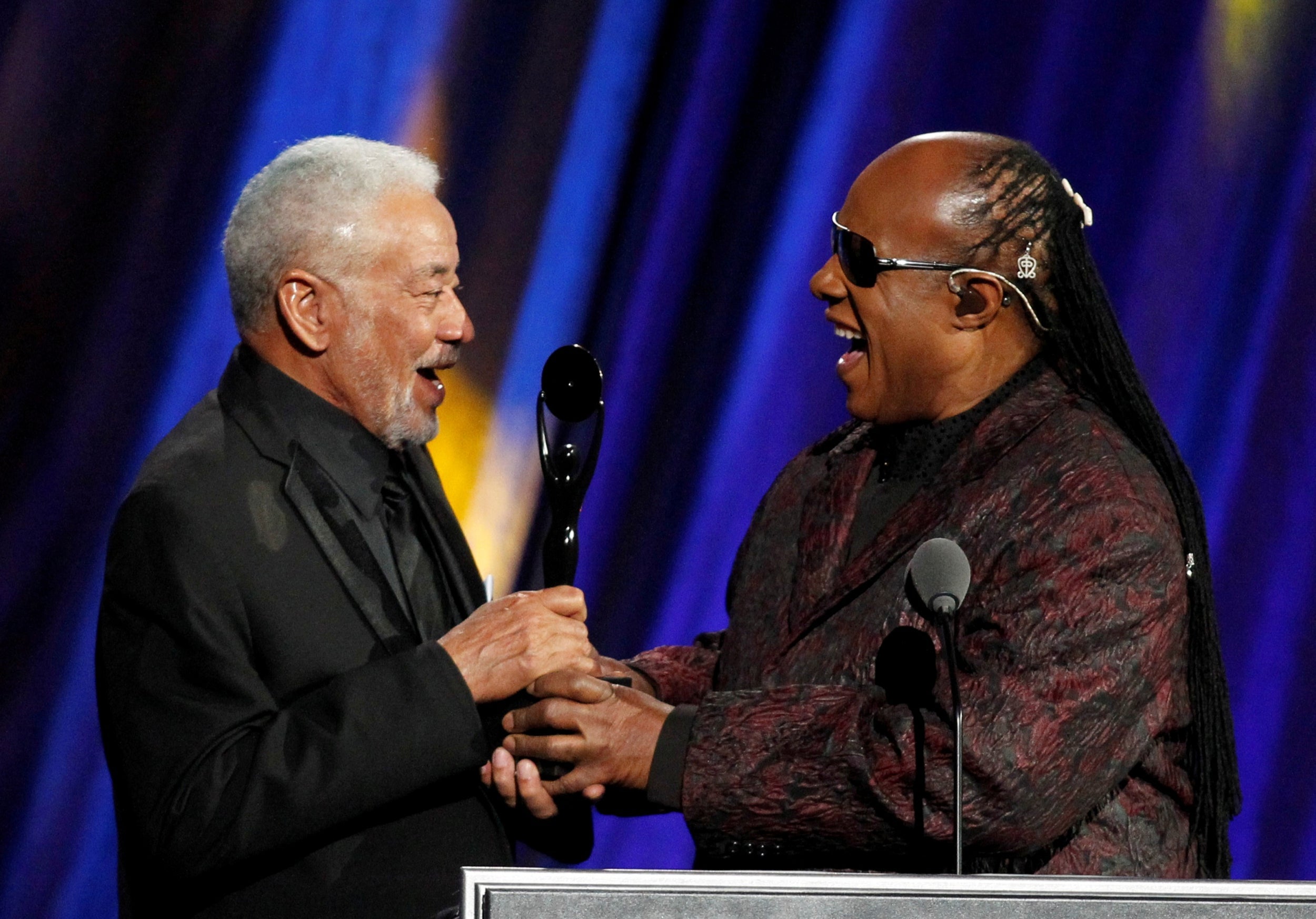Bill Withers: Singer whose biggest hits became eternal pop standards
His down-to-earth approach yielded classics such as ‘Ain’t No Sunshine’, ‘Lean on Me’ and ‘Lovely Day’

Your support helps us to tell the story
From reproductive rights to climate change to Big Tech, The Independent is on the ground when the story is developing. Whether it's investigating the financials of Elon Musk's pro-Trump PAC or producing our latest documentary, 'The A Word', which shines a light on the American women fighting for reproductive rights, we know how important it is to parse out the facts from the messaging.
At such a critical moment in US history, we need reporters on the ground. Your donation allows us to keep sending journalists to speak to both sides of the story.
The Independent is trusted by Americans across the entire political spectrum. And unlike many other quality news outlets, we choose not to lock Americans out of our reporting and analysis with paywalls. We believe quality journalism should be available to everyone, paid for by those who can afford it.
Your support makes all the difference.Bill Withers, who has died in Los Angeles of heart disease aged 81, was a singer and songwriter who managed to break the rules of popular music while creating an exceptional body of work. Four of his songs quickly became standards – “Ain’t No Sunshine”, “Lean on Me”, “Lovely Day” and the strikingly direct “Use Me” – but all the music he made over what would prove to be a surprisingly brief career as an artist (1971-85) is of a very high quality.
Withers was born in Slab Fork, West Virginia, the youngest of six children in a rural, coal mining county. He served in the US Navy for nine years, seemingly having given little thought to music, and was qualified as an engineer when returning to civilian life.
Moving to San Jose, California, he got a job as a mechanic at Lockheed Aircraft. Having suffered from a speech stutter until early adulthood, Withers was a quiet, somewhat reserved man. His weekends were spent going to clubs in San Francisco and Oakland. One night he heard a club-owner complain that the singer Lou Rawls was late even though he was being paid $2,000 a week. “It stopped me cold,” Withers told DISCoveries magazine, “I thought, ‘wait a minute. That’s two grand just to sing some songs.’”
Withers thus purchased a cheap guitar, taught himself some chords and started writing songs. He moved to Los Angeles, worked installing toilets on planes (for Hughes Aircraft) and saved his money so as to cut a demo. One of his demo tapes ended up in the hands of Clarence Avant, an African-American music entrepreneur who was then setting up Sussex Records. Booker T Jones was assigned as producer and Withers started recording. Things quickly stalled due to Avant’s lack of funds: it wasn’t until some months later that Jones and Withers completed the recording.
Ever a pragmatist, Withers held onto his day job even when his first single “Harlem” was released in July 1971. DJs preferred the B-side, “Ain’t No Sunshine”, resulting in the track becoming a Top 10 US pop and R&B hit that would win the 1971 Grammy for Best Rhythm And Blues Song.
Aged 33, Bill Withers was a star. His debut album Just as I Am won wide praise for songs that meshed folk’s observational lyricism with R&B rhythms. The cover featured Withers dressed in casual gear and carrying his lunch pail: with R&B emulating rock in being increasingly loud and ostentatious, Withers focused on intimate songs about very human experiences. “It's not a style or nothin,” he observed of his music. “It’s no secret, no magic, just me.”
His 1972 sophomore album Still Bill, which he produced himself, built on the promise of his debut, and the album’s first single “Lean On Me” topped both the US pop and R&B charts. Follow-up single “Use Me” – a brilliant, explicit song about an unequal relationship built on sexual pleasure – got to No 2 on both US charts. Very quickly, both songs and “Ain’t No Sunshine” entered the repertoire of many contemporary singers.

The double album Live at Carnegie Hall (1973) demonstrated a master at work, his songs and anecdotes are spellbinding. But a disastrous one-year marriage to the actor Denise Nicholas alongside Sussex Records going bankrupt – leading to a bitter legal battle with Clarence Avant – proved distracting.
He re-emerged on Columbia Records in 1975 but never regained his commercial footing: Menagerie (1977) featured the single “Lovely Day” (his only UK Top 10 hit) and was his last notable success as a solo performer.
After the commercial failure of ’Bout Love (1978), Withers disappeared for seven years, later noting how Columbia’s “Blaxperts” rejected the songs he presented to them for a new album, fearing they were not “commercial enough”. He returned in 1985 with Watching You Watching Me. While warmly reviewed, the album sold poorly and Withers announced his retirement.
In 2005, Withers was inducted into the Songwriters Hall of Fame. The 2009 documentary Still Bill let Withers tell his rags-to-happy-retirement story. In 2015, Stevie Wonder inducted him into the Rock’n’Roll Hall of Fame. Later that year, a tribute concert in his honour was held at Carnegie Hall, recreating his historic 1973 live album. Withers attended the concert, deigning to sing before unexpectedly joining the band for a verse of “Grandma’s Hands”.
In 1976, Withers married Marcia Johnson. She began managing his publishing, and their children, Todd and Kori, now work for the family firm. He is survived by Marcia, Todd and Kori.
Bill Withers, singer and songwriter, born 4 July 1938, died 30 March 2020
Join our commenting forum
Join thought-provoking conversations, follow other Independent readers and see their replies
Comments